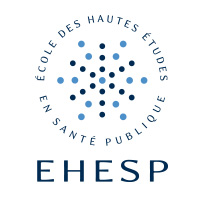Modelling the Relative Vaccine Efficacy of ARCT-154, a Self-Amplifying mRNA COVID-19 Vaccine, versus BNT162b2 Using Immunogenicity Data
Résumé
Background: Self-amplifying mRNA vaccines have the potential to increase the magnitude and duration of protection against COVID-19 by boosting neutralizing antibody titers and cellular responses. Methods: In this study, we used the immunogenicity data from a phase 3 randomized trial comparing the immunogenicity of ARCT-154, a self-amplifying mRNA COVID-19 vaccine, with BNT162b2 mRNA COVID-19 vaccine to estimate the relative vaccine efficacy (rVE) of the two vaccines over time in younger (<60 years) and older (≥60 years) adults. Results: By day 181 post-vaccination, the rVE against symptomatic and severe Wuhan-Hu-1 disease was 9.2–11.0% and 1.2–1.5%, respectively, across age groups whereas the rVE against symptomatic and severe Omicron BA.4/5 disease was 26.8–48.0% and 5.2–9.3%, respectively, across age groups. Sensitivity analysis showed that varying the threshold titer for 50% protection against severe disease up to 10% of convalescent sera revealed incremental benefits of ARCT-154 over BNT162b2, with an rVE of up to 28.0% against Omicron BA.4/5 in adults aged ≥60 year. Conclusions: Overall, the results of this study indicate that ARCT-154 elicits broader and more durable immunogenicity against SARS-CoV-2, translating to enhanced disease protection, particularly for older adults against Omicron BA.4/5.
Domaines
Santé publique et épidémiologie| Origine | Fichiers éditeurs autorisés sur une archive ouverte |
|---|---|
| licence |



